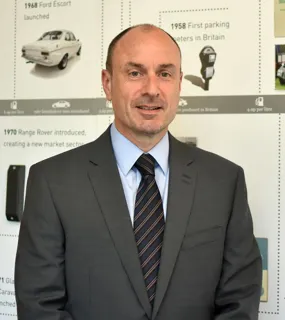 Author: Andy Picton, chief commercial vehicle editor, Glass’s (pictured)
Author: Andy Picton, chief commercial vehicle editor, Glass’s (pictured)
With the coronavirus lockdown easing and businesses back to work, it is encouraging to record a 7.1% growth in the new light commercial vehicle market (LCV), following four months of double-digit decline. Overall, 27,701 new LCVs were registered during July, with growth in all but the Vans under 2.0-tonnes sector.
Performance year-to-date has declined 38.6%, with 136,577 units registered during the first seven months of 2020.
Although July was an improvement on the same month last year, the initial pent up demand is likely only to mask a fragile market.
Breaking the month down by sectors reveals that registrations increased 24.9% for Pickups, 12.0% for Vans between 2.0-2.5 tonnes and 5.4% for Vans between 2.5-3.5 tonnes, whilst Vans under 2.0 tonnes declined 22.0%.
Top five LCV registrations
| Year to date 2020 | July 2020 | July 2019 | |||
|
Ford Transit Custom |
19,774 | Ford Transit Custom | 3,405 | Ford Transit Custom | 3,798 |
| Mercedes-Benz Sprinter | 10,713 | Mercedes-Benz Sprinter | 2,581 | Ford Transit | 2,304 |
| Ford Transit | 10,249 | Ford Transit | 1,785 | Mercedes-Benz Sprinter | 2,148 |
| Vauxhall Vivario | 7,435 | Volkswagen Transporter | 1,545 | Volkswagen Transporter | 1,303 |
| Volkswagen Transporter | 6,585 | Vauxhall Vivario | 1,381 | Ford Transit Connect | 1,206 |
The latest July SMMT new LCV registrations reforecast for 2020 is down 26.3% to 269,000 units for the year. Lockdown has placed all businesses under great financial pressure, with underlying weakness in the market.
Although there is a gradual improvement in demand, the UK is still a long way off normal. The pandemic has affected many businesses and a second wave of localised lockdowns has not helped.
The interconnected nature of the UK economy means that there is likely to be more uncertainty ahead as the UK grapples with a reduced appetite and business nervousness and the possibility of further regional lockdowns.
Moving forward, fleet renewals will be critical to a successful restart and the UKs long-term green recovery given the crucial role light commercial vehicles play.
July used light commercial vehicle (LCV) overview
With auction houses now at near full operational capacity, the used LCV market continues to deliver outstanding performance.
Supply shortages and increased demand are keeping prices high at present however, there is a growing caution against the risk of weakening retail demand linked to a possible second spike in Covid-19 and further lockdowns.
Glass’s auction data suggests the number of sales in July were up 14.0% versus July 2019, with first-time conversions increasing for the fourth month in a row.
There is a growing appetite from trade buyers to purchase good quality stock. Sales of Euro 6 light commercial vehicles increased to just under 50% of the overall total in July, with the number of different online buyers increasing as well.
Supporting this enthusiasm is data confirming average prices across all ages and sectors have risen 39.0% versus July last year.
July in detail
The average age of sold stock in July rose from 64.8 months in June to 69.5 months. This figure was 3.4 months lower than the same point last year.
Average first-time conversion rates stand at an extraordinary 92.3%, up from 86.5% in June and up from 76.7% 12 months ago.
Average mileage for sold vehicles stands at 71,878 miles, an increase of 2,226 miles on June but nearly 8,500 miles less than July 2019.
Glass’s continues to monitor the LCV market closely and has an open dialogue with auction houses and manufacturers, leasing and rental companies, independent traders and dealers as well as the main industry bodies.
This information, combined with the wealth of knowledge in our CV team ensures Glass’s valuations remain relevant in the market place.



















Login to comment
Comments
No comments have been made yet.